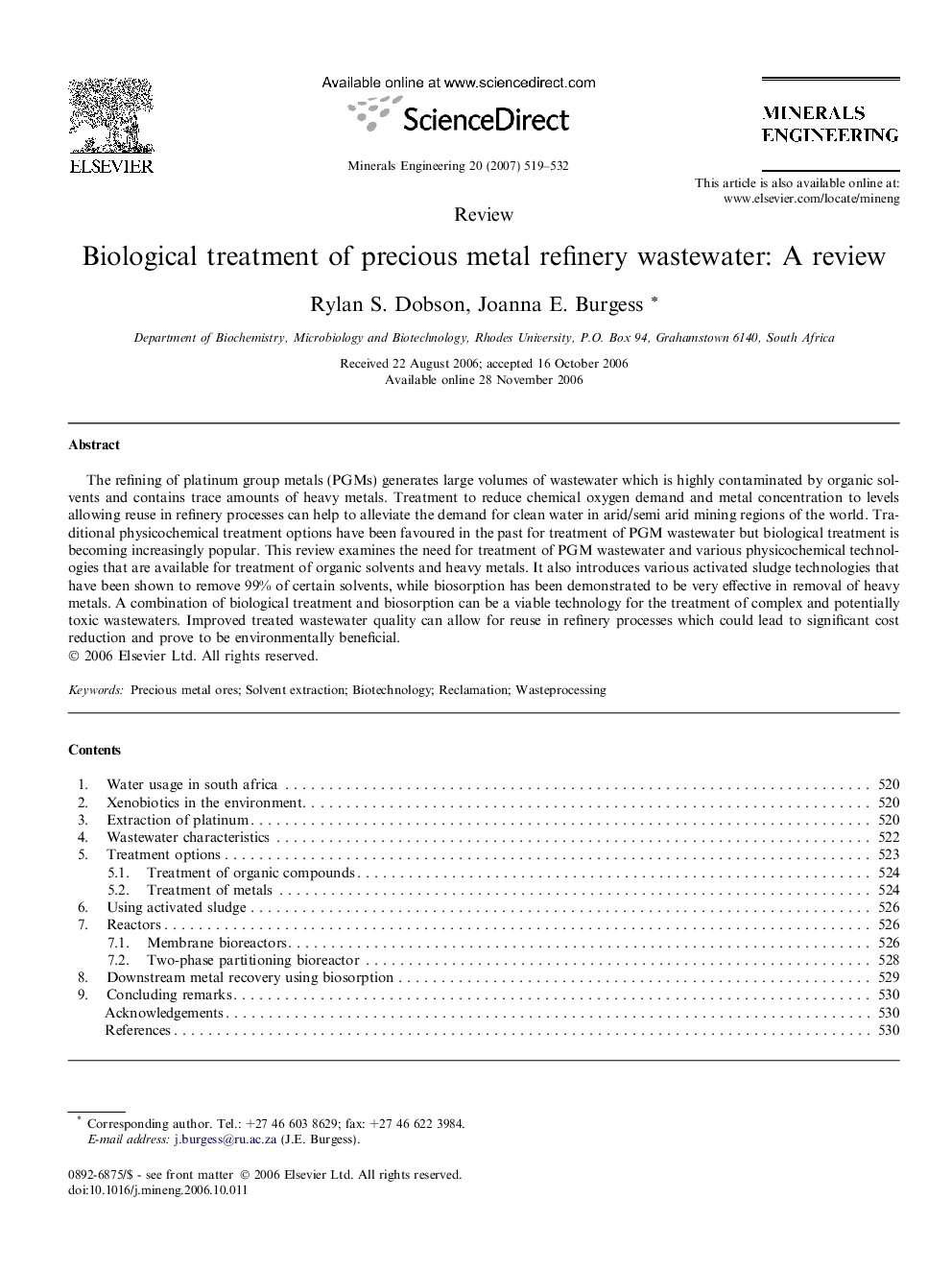| Article ID | Journal | Published Year | Pages | File Type |
|---|---|---|---|---|
| 234852 | Minerals Engineering | 2007 | 14 Pages |
The refining of platinum group metals (PGMs) generates large volumes of wastewater which is highly contaminated by organic solvents and contains trace amounts of heavy metals. Treatment to reduce chemical oxygen demand and metal concentration to levels allowing reuse in refinery processes can help to alleviate the demand for clean water in arid/semi arid mining regions of the world. Traditional physicochemical treatment options have been favoured in the past for treatment of PGM wastewater but biological treatment is becoming increasingly popular. This review examines the need for treatment of PGM wastewater and various physicochemical technologies that are available for treatment of organic solvents and heavy metals. It also introduces various activated sludge technologies that have been shown to remove 99% of certain solvents, while biosorption has been demonstrated to be very effective in removal of heavy metals. A combination of biological treatment and biosorption can be a viable technology for the treatment of complex and potentially toxic wastewaters. Improved treated wastewater quality can allow for reuse in refinery processes which could lead to significant cost reduction and prove to be environmentally beneficial.
